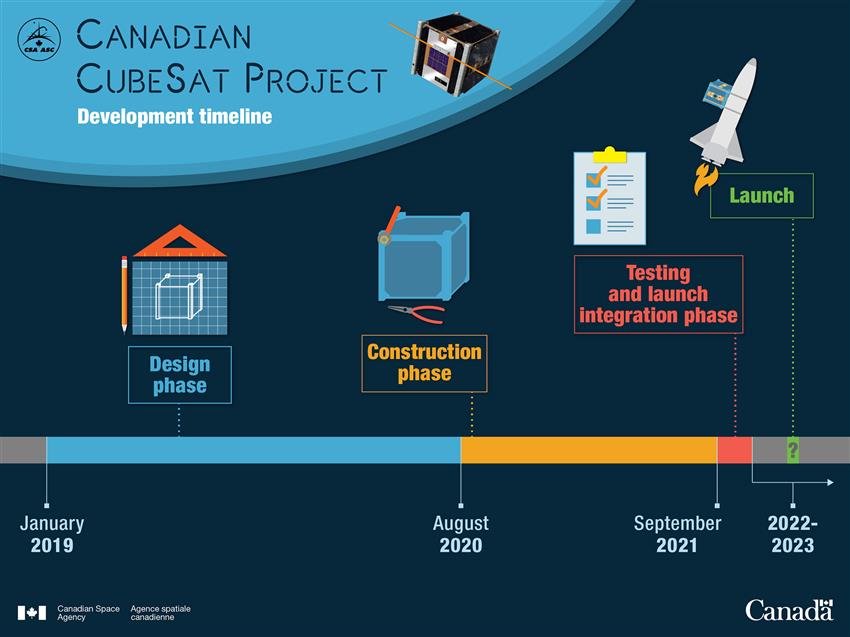About the Canadian CubeSat Project
The Canadian CubeSat Project (CCP) is providing professors in post-secondary institutions with an opportunity to engage their students in a real space mission. Through this national initiative, winning teams of professors and students are offered the unique opportunity to design and build their own miniature satellite called a CubeSat, that will be launched into space.
The CCP was announced in . European Space Agency (ESA) astronaut Thomas Pesquet officially invited Canadians to take part in the project, live from the International Space Station (ISS):
Credits: Canadian Space Agency (CSA), ESA, NASA, University of Alberta
Selected teams
In , the CSA announced the selection of the winning proposals and awarded a total of 15 grants. Overall, 37 organizations are participating in the CCP, thanks to several inter-regional, inter-provincial and international collaborations that include universities from Europe, Australia and the USA.
Student teams across Canada are now hard at work to first design and then build their CubeSats. Once tested and ready for space, the CubeSats will be launched to and deployed from the ISS in 2022–2023. The student teams will then operate their satellites and conduct science according to the objectives of their missions, which could last up to 12 months.
The Canadian CubeSat Project is providing professors in post-secondary institutions with an opportunity to engage their students in a real space mission. (Credit: Canadian Space Agency)

Canadian CubeSat Project development timeline - Text version
Canadian CubeSat Project timeline at a glance. (Credit: CSA)
Objectives of the Canadian CubeSat Project
The main objectives of the CCP are to:
- Increase students' interest in STEM, particularly in space domains;
- Develop students' expertise in space domains;
- Give students hands-on experience and prepare them to enter the job market; and
- Advance space science and/or technology.
Throughout the project, CSA experts, as well as representatives from the Canadian space industry, will guide professors and students to optimize the success of each mission. This unique hands-on experience will provide students with the opportunity to acquire expertise in a wide variety of areas – ranging from science and technology to communicating their work to the public – and develop invaluable skills that will prepare them to become Canada's next generation of space innovators.
Funding and eligibility
A total of 15 grants ranging from $200,000 to $250,000 was awarded following an Announcement of Opportunity (AO). Eligible organisations were Canadian post-secondary institutions (colleges and universities).
Contact
Should you have any questions regarding this initiative, contact us at projetcubesatasc-csacubesatproject@asc-csa.gc.ca.

